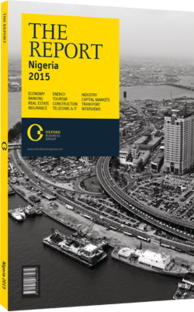Enhanced integration in Nigeria aimed at boosting regional trade
As the continent’s largest economy, Nigeria plays a central role in West Africa both diplomatically and economically, and nowhere is this more evident than in the influence it exerts within ECOWAS – West Africa’s economic and trade grouping. ECOWAS was founded in 1975 and its charter revised in 1993 with the mission of promoting economic integration through monetary and economic unity and creating a single trading bloc. Today the group is composed of 15 member states, and has expanded its role to include mutual defence assistance measures and non-aggression protocols.
Boosting Trade
Nigeria has laid out an ambitious plan to increase regional trade, to build upon its already substantial market share. According to a statement made by Ngozi Okonjo-Iweala, the coordinating minister for the economy and minister of finance, in August 2013, Nigeria represents 55% of regional trade volumes. However, intra-regional trade volumes are extremely low, even compared to other regions within Africa. Trade between ECOWAS markets comprises less than 10% of the member states’ overall trade; in East Africa, this figure is closer to one-third, while in the EU it is more than two-thirds.
Roughly 0.5% of Nigerian imports in the first quarter of 2014 originated within the ECOWAS region, according to the National Bureau of Statistics, with Ghana and Côte d’Ivoire accounting for the lion’s share. These numbers, however, do not capture informal trade and smuggling, a sizeable contributor to regional trade flows. The World Bank estimates non-oil trade volumes with neighbouring Cameroon is between 83% and 95% underreported, while an estimated $5bn in goods is smuggled in from Benin every year.
The government’s intention to increase regional trade is part of the broader initiative to create a more diverse economy, focusing investment on the long under-funded non-oil economy. In September 2014 Olusegun Aganga, minister of industry, trade and investment, announced plans to increase non-oil exports to ECOWAS countries from 9% of total non-oil exports to 20% by 2015 and increase total exports to the region to $706.1m over the same period, a nearly threefold increase from 2011. The initiative is part of the new National Trade Policy and Strategy.
Common Tariff
Central to the efforts of ECOWAS to reduce smuggling is the implementation of the Common External Tariff (CET), which will go into effect in 2015. The new scheme, which is still in negotiations, will harmonise tariffs among all ECOWAS countries. The current CET structure is composed of five bands with different tariff levels: 0% for essential social goods, 5% for raw materials and goods of primary necessity, 10% for semi-processed intermediate products, 20% for finished consumer goods, and 35% for sensitive or protected products. Nigeria’s trade weighted tariff is 10.5%, among the highest in ECOWAS, and maintains a list of 24 banned product categories as well.
The new CET scheme is also expected to ease cumbersome Customs procedures and reduce additional levies. The complexity of Nigeria’s Customs regime makes it especially difficult for small businesses in the region to participate in cross-border trade. In the “Doing Business 2015 ” report by the World Bank, Nigeria is ranked 159th out of 189 countries in terms of ease of trading across borders. Similarly, in the World Bank’s 2014 Logistics Performance Index, Nigeria ranks 117th out of 160 countries in terms of Customs efficiency.
ECOWAS initiatives extend beyond its role as a trading bloc. A common currency is on the agenda for the future. The group also took on a key role in efforts to contain the Ebola outbreak that has plagued many countries in the region. In September 2014 Kadré Désiré Ouédraogo, president of ECOWAS, called on member countries to support the Regional Solidarity Fund to help fight Ebola through improvements in surveillance and health care. Ouédraogo has also stated that ECOWAS, as part of its counter-insurgency strategy, is coordinating efforts to assist Nigeria with its insurgency in the north, citing peace and stability in the region as necessary building blocks for economic prosperity.
You have reached the limit of premium articles you can view for free.
Choose from the options below to purchase print or digital editions of our Reports. You can also purchase a website subscription giving you unlimited access to all of our Reports online for 12 months.
If you have already purchased this Report or have a website subscription, please login to continue.

